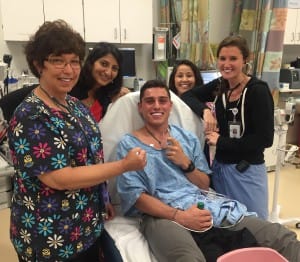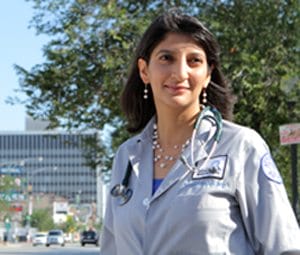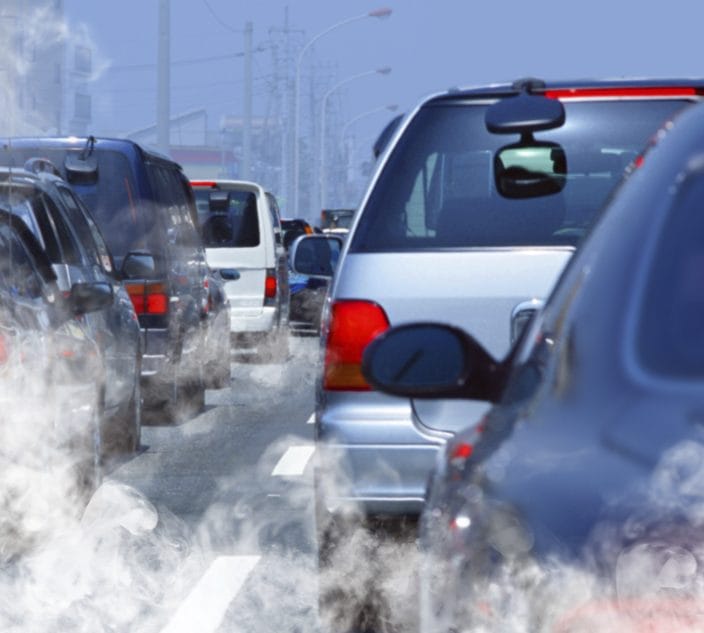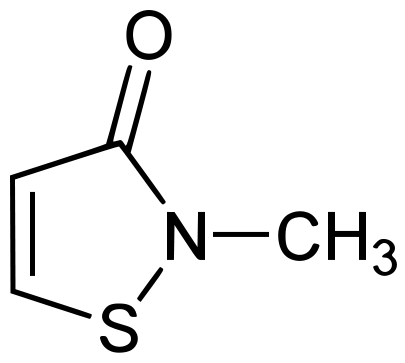Most lawyers are familiar with President Abraham Lincoln’s words: “He who represents himself has a fool for a client.” The interpretation I’ve always heard – as the son of a criminal defense lawyer – is that being so engrossed in a situation can blind you to its realities, making it difficult to achieve the best possible outcome.
This concept is obviously detrimental in criminal trials, but I recently understood it in a pretty unorthodox context when I went into anaphylaxis during my time working as a research assistant at the Food Allergy Outcomes Research Program with Dr. Ruchi Gupta at Northwestern University in Chicago.
I’ve struggled with food allergies all my life. I spend my day with two auto-injectors, forever asking if there are tree nuts or chickpeas or sesame in anything I eat. I was lucky to grow up with a strong parental support system that allowed me to go about my childhood virtually worry free – mainly because my mom worried enough for the both of us. She even made sure that I met with the campus dietitian at Tufts University when I started college to talk about food on campus, so that I could feel safe when eating in dining halls.
Despite all of (or possibly because of) what my mom has done for me, I have been disturbingly careless when it comes to my allergies. As an Emergency Medical Technician (EMT), I am well aware of the dangers of the multi-system allergic reaction known as anaphylaxis. Regardless, I still feel invincible – just like all my other 19-year-old counterparts – when it comes to the impact my allergies have in my life. It is in part this teenage naiveté (or less euphemistically, ignorance) that led to my most recent attack.
The story of that day is well-known in the allergy world: I had thought I read the ingredients on a package of kale chips, but ended up eating a kale chip that included cashews (one of my allergens). My throat began to tingle almost immediately, so I ran out and bought Benadryl. Back in my office, I threw up (a lot) and felt my throat closing tighter and tighter. By the time my supervisor convinced me to go to the hospital emergency department (about 15 minutes later), I was barely able to breathe. It was one of my worst reactions ever – requiring the equivalent of three epinephrine auto-injectors and three courses of albuterol, to open up the airways in my lungs. I was ultimately admitted to the hospital.
The nuances of this story, however, are less simple. My first mistake: I hadn’t told Dr. Gupta that I had food allergies. I didn’t think it was appropriate or relevant to my ability to do the work requested of me in the lab. This only added to the embarrassment I felt during my reaction, and it made me more inclined to downplay my reaction when it occurred. This also had the potential to create a situation during which epinephrine would be further delayed if I had lost my ability to advocate for myself (e.g. tell her I was going into anaphylactic shock), endangering myself even more.
My second mistake: I delayed using my epinephrine auto-injector. Typically, the device should be used at the first sign of a severe reaction, but being so well versed in allergic reactions from the perspective of an academic and provider made it difficult for me to recognize the severity of my reaction and respond accordingly. I should have known I needed epinephrine not as an EMT, but as a self-aware person with allergies. Finally, I forgot to follow the tenet of living with severe allergies: always carry your epinephrine auto-injector.
I was very lucky that I worked so close to an emergency department, and I was even luckier that I was with people who understood food allergies. I can assure you that I now always carry my auto-injectors, and that I will try to be more aware of what my body needs. It’s a hard practice – balancing food allergies with a strong work ethic and disdain for being a burden on anyone – but it is something I need to develop. I need to have an internal frame-shift from encumbrance to acceptance of my condition that occasionally requires my full attention and trust in others, so that I survive.
I can’t help but think how I’ve developed my current, skewed understanding of my allergies. Is it that my mom always carried my auto-injector for me and I didn’t need to worry? Is it the mindset that surrounds food allergies in our society? A sense of invincibility? Does one need to have a serious reaction to start taking their allergies seriously? I wish I had the answer, but I sadly do not. For now, though, I am just going to hope this post-reaction hyper-awareness persists.
***
Dr. Ruchi Gupta: Insights of a witness to anaphylaxis
Before this reaction, Justin had been working on many of our food allergy and asthma related studies, but I was unaware of how personal both of these topics were to him until the day of his reaction in our lab – a day that will forever be etched in my memory.
I am a pediatrician, food allergy and asthma researcher, and a mother of a child with food allergies. I speak around the world about anaphylaxis management (coincidentally, I frequently speak about teens, independence, and risk-taking).
On this day, I learned how complex “doing the right things, in the right order” really is. After I realized Justin might be having a severe allergic reaction, my mind was flooded with thoughts. What should I do? Did Justin have his auto-injector? Should we head to the Emergency Room two blocks away? Should I listen to Justin, a young adult, or can I tell him what to do?
I was able to see first-hand what I research, and I learned a tremendous amount because of that. I learned just how hard it is in the moment, even as a physician, to know when to call a reaction anaphylaxis and then take the necessary steps to intervene.
I believe Justin taught me more this summer than I taught him. We both learned the importance of always checking labels, being prepared with epinephrine, making sure to react quickly, educating people around you, and the importance of having strong support systems. We both learned how difficult identifying an anaphylaxis emergency and acting on it can be.
We also learned what I often preach – trust your instincts and if there is a suspicion this could be serious, always act! Luckily, even after the confusion, we did act and Justin is doing well and is all the wiser (as am I).
Related Reading:
How a sleepover guest came to my allergic daughter’s rescue.
A story about mixing culture with food allergies.








